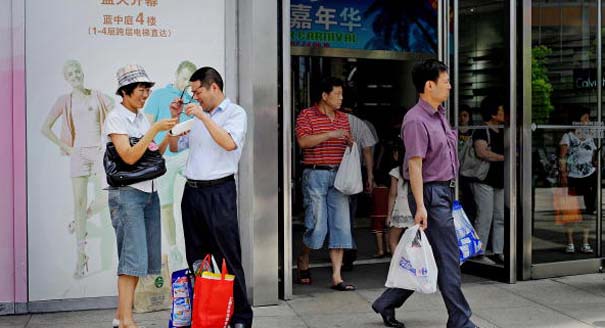Much of the news coverage about the recent meeting in Beijing of the National People’s Congress has focused on the government’s determination to bring down inflation. An even more interesting story, however, may be the difficult internal debate on Beijing’s longer-term effort to raise the level of Chinese household consumption.
This is not to say that the fight against inflation isn’t an important issue. In Premier Wen Jiabao’s opening speech on March 5, it was noteworthy that the top priority on his list of government objectives for the next five years was containing rising prices. This is the first time in many years that maintaining high economic growth was not listed as the top priority. The second priority Wen listed, however, was raising the household consumption share of China’s GDP.
At the risk of oversimplifying a complex debate—whose political sensitivities make the debate itself at times somewhat oblique—the issue is whether or not China can rebalance its economy toward a greater reliance on domestic consumption by engineering administrative measures targeted specifically at consumption. Vice Minister of Commerce Jiang Zengwei, for example, recently announced a development plan, to be released in April, in which, according to the People’s Daily, “efforts will be made to further expand domestic consumption demand, vigorously promote consumption of residents in urban and rural areas, foster new consumption growth areas, accelerate circulation modernization, develop chain operations and speed up the development of e-commerce.”
But will the execution of the plan actually increase consumption? Although much of the policy-making establishment seems to believe that these measures can work, a small but growing group insists that China cannot raise the consumption share of GDP without a major adjustment in the growth strategy that has been in place for the last decade. Previous administrative attempts to boost consumption—for example, the automobile and white-goods subsidies of the past two years—have increased consumption of specifically targeted items, they point out, without boosting overall consumption.
If that’s the case, the administrative measures are likely to fail because they do not address the underlying problem, which is the low share of Chinese household income. The measures will merely boost consumption of certain favored items at the expense of other items, and overall consumption will stagnate as a share of GDP.
In the end, resolving this debate may be the most important economic issue for China’s policy makers. Rebalancing growth from investment to consumption will be a difficult task at best, but the process will determine the success of China’s long-term economic growth.





.jpg)